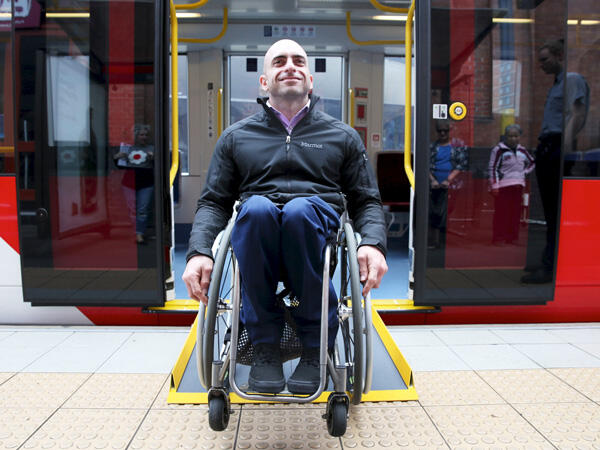
Frictionless Ticketing for Public Transport
Research designed to explore new and emerging technologies that could be implemented to introduce frictionless ticketing, particularly for people with a disability. The research was undertaken by the Centre for Technology Infusion, at La Trobe University.
Transport for NSW (Transport) partnered with La Trobe University on this research. The research was designed to explore new and emerging frictionless ticketing technologies that could be introduced across multiple modes on the public transport system. This research set out to particularly explore ways to overcome barriers facing people with a disability. The research produced several key deliverables and reports including a technical review of technology types and their applicability, a summary of the stakeholder engagement undertaken to inform the research and a review of regulations. The research will ultimately assist us in planning future ticketing technologies.
The final report of this research has been broken up into a number of reports.
Overall, the research concluded
- Frictionless ticketing provides a key service improvement opportunity by enabling a more customised journey experience, particularly for people with a disability.
- Regardless of technology type, a key challenge is delivering a reliable and accurate positioning system both indoors and outdoors to ensure the ticketing experience is truly frictionless. The chosen technology would also need to be able to process large numbers of passenger simultaneously.
- Several technology types were considered candidates based on their technical fit for purpose. These were ultra-wide band (UWB), 5G, biometrics and simultaneous location and mapping technologies (SLAM). These are reviewed in detail in Appendix 1 and Appendix 4.
- Extensive consultation with people with a disability revealed that while the concept of ticketing automation was exciting to most, retention of a human element was important. There was agreement that no ‘one size fits all’ solution would support all circumstances. Consultation with multiple mode operators confirmed this assertion. The consultation process is discussed in Appendix 2.
- A review of the regulatory environment in NSW around ticketing suggests updates would need to be made to accommodate new technology introductions. A review of regulations is provided in Appendix 3.
The reports provide a comprehensive review of technology options including:
- their technical features
- industry standards and protocols
- regulatory institutes
- market leaders delivering the technology including existing products
- academic support for the technology, and
- a brief future roadmap.
In consultation, the research also produced an evaluation framework including criteria used for evaluating technology options that considered things like end user requirements, technical performance requirements and other business case metrics.
Documentation
- Frictionless Ticketing for Public Transport – Executive Summary (PDF, 709.58 KB)
- Frictionless Ticketing for Public Transport – Summary (Accessible version) (PDF, 308.28 KB)
- Frictionless Ticketing for Public Transport – Main Report (PDF, 1.29 MB)
- Frictionless Ticketing for Public Transport – Appendix 1: Technology review (PDF, 3.82 MB)
- Frictionless Ticketing for Public Transport – Appendix 2: Stakeholder engagement (PDF, 1.1 MB)
- Frictionless Ticketing for Public Transport – Appendix 3: Regulatory review (PDF, 859.39 KB)
- Frictionless Ticketing for Public Transport – Appendix 4: Technical literature overview (PDF, 1.07 MB)
- Frictionless Ticketing for Public Transport – Disability Stakeholder Consultation Report (Accessible version) (PDF, 672.06 KB)
This research was delivered in partnership with iMOVE CRC and supported by the Cooperative Research Centres program, an Australian Government initiative.
